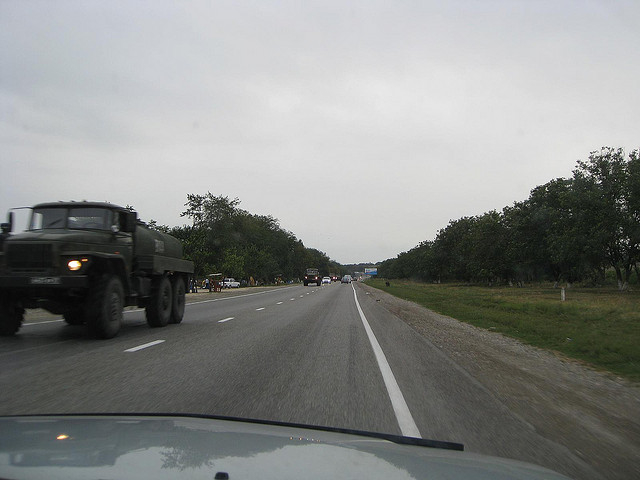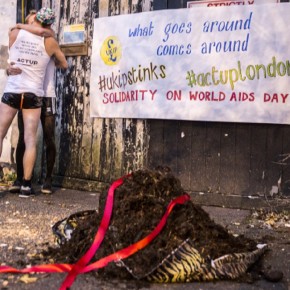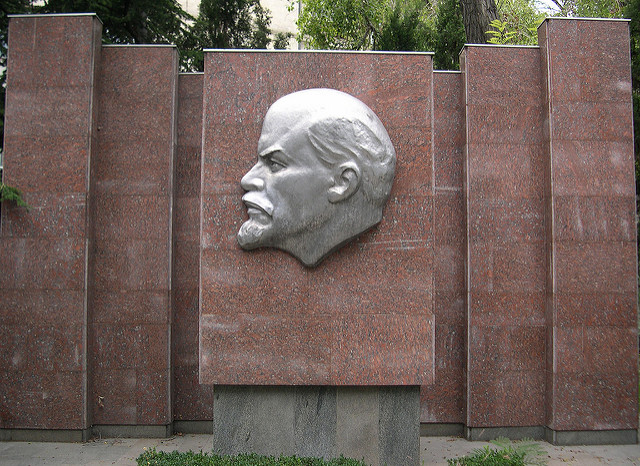In the 21st century, many countries border each other with roads, and tunnels. But Georgia’s neighbour is Russia, not Switzerland, or France. Russia is not a modern, thinking country, and has no plans to be so.
It’s the chestnut season, in the Kakheti mountain region of eastern Georgia. Almost every day, 78-year-old David Gogoberishvili and his friend take a path to collect several sacks of chestnut and some wood. This path takes them up to the border with Russia, but the border guards let them carry on picking because they know these two men will soon return. But taking this path could be very dangerous, because Russia has a grand plan, which is to build a road that will connect Georgia to Dagestan.
At an estimated cost of $1.5 billion, this is one of the most volatile regions, raising concerns that the road may not be as peaceful as it is promised to be. It’s not that the road is completely new. It was always there, during the Soviet period, and even in 2008, during the Russo-Georgian War. Because of potential military threats from Russia, the Georgian government decided to mine it, to prevent the Russian army from advancing into Georgia.
This road is quite impressive. It’s large enough for powerful 4 wheel drives, and locals know every corner of it. “Currently, the Russian authorities are constructing the road from Makhachkala to Tbilisi at a fast pace—the construction work is carried out 24 hours a day, with no breaks,” Andrei Illarionov, a former advisor to the Russian president, Vladimir Putin, turned opponent, said.
Illarionov thinks that if the 470 kilometre road is built according to plan, Russian forces will able to invade Georgia quickly, establish a land corridor with Armenia, Russia’s ally in the South Caucasus, and cut off the Caspian and the Central Asian region, which is rich in energy resources, from international markets. The highway is expected to be completed by March 2015. (The government of Dagestan confirmed the beginning of construction in July 2014.)
Walking around a collection of small villages near the border was easy. People are friendly and often outside in the streets to talk, and entertain themselves. Old Mahmada Alyev was leaning on his stick outside his house.
“Why do you want that road to be restored, Mahmada?” I asked.
The 82 year-old is very fond of the road. He thinks it will increase local trade. People will take goods to each other, and renew lost communications. More than that, he is excited to see his relatives and people he knows in Dagestan in less than two hours. Poverty is the main motivator, he quietly replied. A smiling neighbour agrees, and then helps me to translate some of the words he cannot pronounce in Russian.

Tivi, Saruso and Chantliskhure are the border villages of the security post where a Soviet road once stretched from Dagestan to Georgia. Now it’s a run down road, full of potholes, which villages are only using to collect chestnuts and wood. Border post soldiers refuse to talk to me. But they know everyone who goes into these woods by face. There is no threat at this stage.
Here in this scenic place, villagers are mostly worried about their well-being. Maybe they feel no backing of any government, but they feel no threat from Russia, should this road resume functioning, either. I managed to gather scores of the villagers around me to discuss how important this road was. For the most of them, the last time they used it was 1997, to go to Dagestan. Then it deteriorated.
“We could take the fruits, there and sell; we are isolated now and locked in. I could make at least $1000 a month if I had this road available to sell my goods. Now, only by horse, or by walking,” a young man, dressed in a sports outfit, explains. “You can use the road, but the guards will arrest you.”
One woman was even arrested by the Russian border guards a few years ago, when she decided to cross the road illegally, and was jailed for three days, without paying a fine. She laughs at this story today, along with her family, showing off her sets of gold teeth, but told me she was quite scared at the time.
Even someone as young as Dibirovi Zafira, a twenty-nine-year-old local villager, who doesn’t have any education, is repeating the stories from the elders, and is very convinced that the road will be useful, and the visa regime will be abolished. They all try to hide the fact that some of them even own Russian passports, or have relatives there, allowing them to qualify for Russian citizenship easily.
While most are unworried if Russia uses the road to invade, they said Russia will invade if it wants to, despite the road. The road is mainly viewed as a tool to sell their harvest, and to find jobs in Russia.
It is hard to blame the locals, called Lekis, or Avars, the name used by Georgians for a local group of tribes originally from Dagestan, when the central government keeps a very low profile when it comes to talking about the road.
Only the former Minister for European and Euro-Atlantic Integration, Alex Petriashvili, has made comments about Russia’s possible strategic interest in the road, rather than its economic value. Prime Minister Irakli Garibashvili has repeatedly denied commenting on the road, adding that what Russia is doing on its territory is not Georgia’s concern.
The bordering village of Akalsopheli, which has a larger Georgian population, is more wary and concerned.
Shop owner Natela Kakhurashvili, 56, says that “If they simply come in and use the road to invade, why do we need such an open road with Russia? It’s beyond me, and could be dangerous.” Liana Tsiklauri agrees. Her friend Gia, 47, who sells second hand tires in the village and runs a successful business says, that maybe it could be good, but of course, when taking into consideration Russian plans, this road has more strategic aims for Russia than economic ones. It’s a dangerous project, for sure.
In reality, Russia always viewed such infrastructural projects as good for controlling the Caucasus, Georgia, Armenia and Azerbaijan. It is unclear when and if Armenia’s political climate may change and they will have easy access. This is the view of Emzar Jgherenaia, an analyst who tells me, that despite financial or economic problems, Armenia never says no to such strategic projects.
He also thinks that the West may tell Georgia to go ahead with the road, as it will be good for the economy. But the question is what economy and products. Georgia doesn’t produce enough to justify this expense.
Even though Russia accounts for a high percentage of Georgia’s exports (between January and September 2014, 9.9 percent of exports went to Russia,) Georgia cannot justify the road’s expense. Russia wants to use every possible way to control the region, and nothing will stop it.
“Only business is worrying us. Risks and threats from Russia, no. Don’t worry, nothing will happen. People will get closer,” said Ali Magamedovi , a fifty-year-old border village thinks. This is exactly how Russia wants people to think. Reality may prove to be very different.
Photographs courtesy of Jason Blue-Smith, Michael Hemmingsson and Agnes Montanari. Published under a Creative Commons license.





